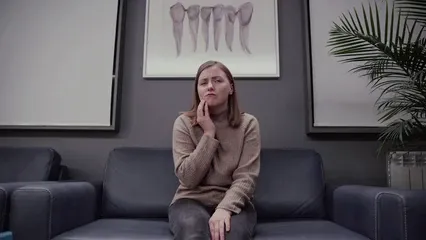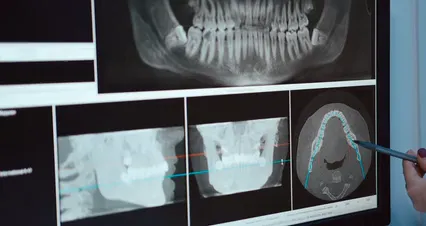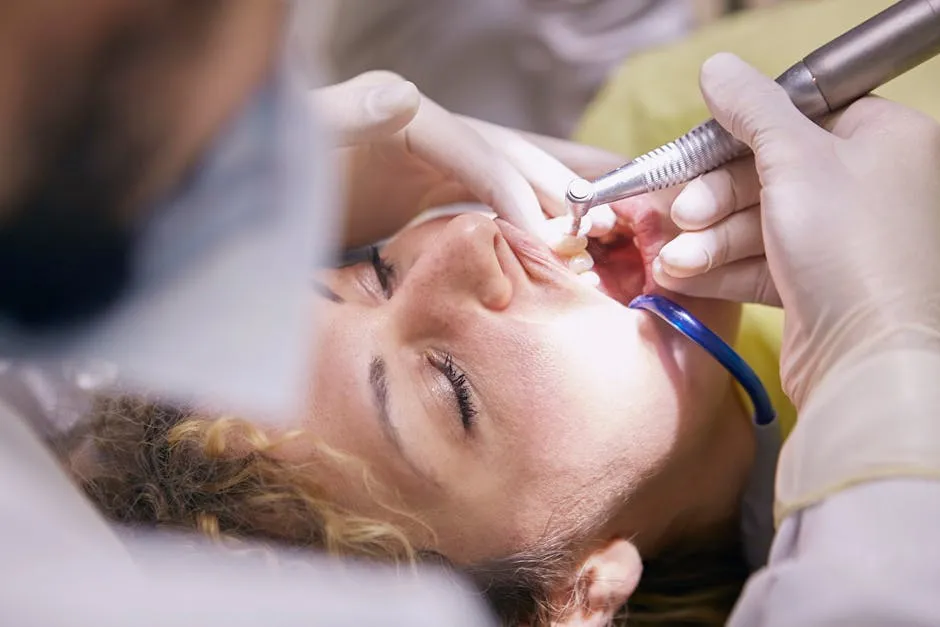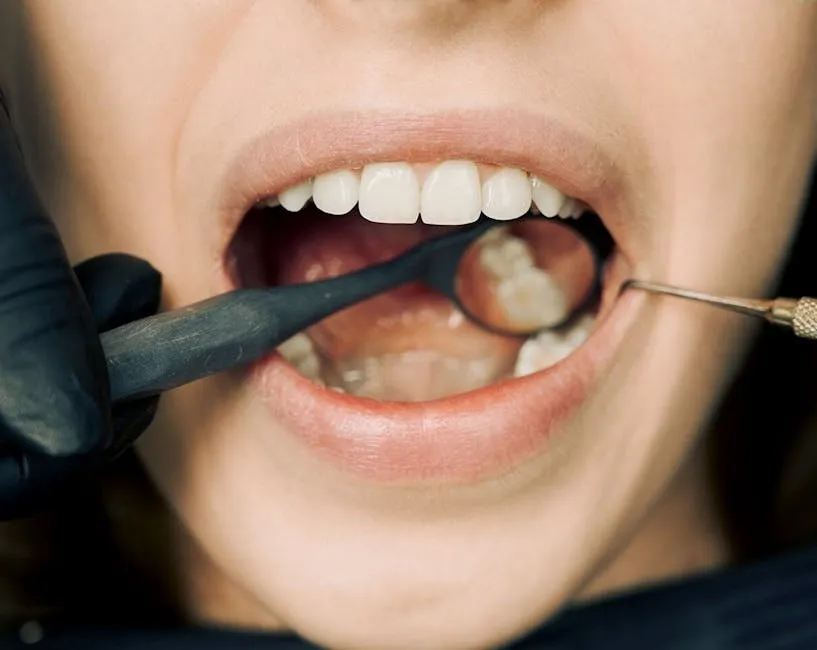
Why Is Seeking Professional Help Crucial for Managing Bruxism in the Coming Months
Introduction
Bruxism, the involuntary grinding or clenching of teeth, is a common yet often overlooked condition. It can occur during the day or at night, and many people remain unaware of their habits. While it may seem harmless, untreated bruxism can lead to serious consequences. Imagine waking up with jaw pain that feels like you’ve been chewing on a rock all night. You might even experience headaches that rival a marching band playing in your skull.
The potential fallout from bruxism includes dental damage, such as worn enamel or cracked teeth, and discomfort in the jaw muscles. If ignored, bruxism can disrupt your sleep, impacting your overall health. This article aims to highlight why seeking professional help for bruxism is essential, especially as we approach the upcoming months.

Seeking professional help is crucial for managing bruxism effectively, especially during stressful periods. Learn more about the importance of professional help.
With the stress of the holiday season or the start of a new year, many might find their bruxism worsening. Instead of suffering in silence, it’s time to take action! Professional help can provide tailored solutions to keep your smile intact and your jaw relaxed.
Speaking of taking action, have you considered a custom mouthguard for bruxism? It’s like giving your teeth a cozy blanket to snuggle in while you sleep, protecting them from all that grinding action!
Understanding Bruxism
Definition and Types of Bruxism
Bruxism refers to the involuntary grinding or clenching of teeth, often caused by stress, anxiety, or sleep disorders. There are two main types: awake bruxism and sleep bruxism. Awake bruxism occurs when someone grinds or clenches their teeth while awake, usually in response to stress or concentration. You might catch yourself doing it during a tense meeting or while focusing on a project.
On the other hand, sleep bruxism happens during sleep and is considered a sleep-related movement disorder. This type is often more damaging because individuals are unaware of their actions, leading to significant wear on their teeth and jaw. Both types can affect people of all ages, from children to adults, making it essential to recognize the signs early.
Awareness is the first step toward effective management. If you notice symptoms like jaw pain, headaches, or worn-down teeth, it’s time to consult a professional. They can help determine the type of bruxism you have and create a tailored approach to tackle it effectively.
Bruxism is not just a dental issue; it can significantly impact your quality of life. So, don’t ignore the warning signs! Seeking professional help can lead to a more comfortable and healthier future.

The Importance of Professional Help
Early Diagnosis
Bruxism isn’t just a quirky habit; it can wreak havoc on your dental health. Early diagnosis is crucial to prevent long-term damage. Imagine waking up with a jaw that feels like it went ten rounds with a heavyweight champ. The longer you wait, the worse it can get!
Dental professionals use various methods for diagnosis. A simple physical examination can reveal signs of wear on your teeth. They might ask about your symptoms and history. Some may even recommend a sleep study if they suspect nighttime grinding. The sooner you identify bruxism, the better the chances of preventing serious dental issues. A proactive approach can save you a world of pain—literally!

Customized Treatment Plans
Every mouth is unique, and so are the causes of bruxism. That’s why customized treatment plans are essential. A one-size-fits-all approach won’t cut it when it comes to your oral health. Professionals can assess your specific situation and devise a plan tailored to your needs.
Treatment options are varied and can include custom mouthguards. These mouthguards act like a shield, protecting your teeth from grinding forces. They can also help alleviate jaw tension. Stress management techniques, such as cognitive behavioral therapy workbooks, can be integrated into your plan. This combo ensures you tackle both the physical and emotional aspects of bruxism.
For some, dental corrections may be necessary. Misaligned teeth can significantly contribute to grinding. By addressing these issues, you’ll not only improve your dental health but also your overall quality of life. Imagine saying goodbye to headaches and jaw pain while flashing a confident smile!
In summary, seeking professional help can make all the difference in managing bruxism effectively. Early diagnosis and customized treatment plans are the keys to a healthier mouth and a happier you. Don’t let teeth grinding take the joy out of your life—get the help you need today!

Interdisciplinary Approach
Managing bruxism requires more than just a dentist’s visit. An interdisciplinary approach is essential for effective treatment. This means bringing together experts from various fields like dentistry, psychology, and sleep medicine. Each professional contributes unique insights and strategies, creating a comprehensive plan tailored to the individual.
Let’s break this down. Dentists assess the physical damage caused by bruxism. They analyze the wear on teeth and recommend protective measures like mouthguards. But that’s just one piece of the puzzle.
Psychologists play a vital role too. They help tackle the underlying stress and anxiety often linked to bruxism. Techniques such as guided meditation CDs can teach individuals how to manage their stress levels. This dual focus on physical and mental health leads to better outcomes.
Sleep specialists add another layer of expertise. They can identify sleep disorders that may exacerbate bruxism. Poor sleep quality can lead to increased grinding, creating a vicious cycle. Addressing these sleep issues can significantly reduce bruxism symptoms.
In summary, a multidisciplinary approach ensures that all aspects of bruxism are addressed. It combines physical treatment with psychological support and sleep health. This comprehensive strategy is key to managing bruxism effectively and improving overall quality of life.

Treatment Options for Bruxism
Dental Interventions
Mouthguards and Splints
Mouthguards are the frontline defense against bruxism. They work by creating a cushion between your upper and lower teeth. This prevents direct contact, reducing wear and tear. Imagine your teeth as delicate porcelain figurines; a mouthguard is like a soft blanket protecting them from harm.
There are two types of mouthguards: over-the-counter and custom-fitted. Over-the-counter options are convenient and often less expensive, but they may not fit perfectly. Custom-fitted mouthguards, on the other hand, are tailored to your unique dental structure. They provide maximum comfort and protection. Think of it as a tailored suit versus off-the-rack; the fit makes all the difference!

Other Dental Treatments
In addition to mouthguards, other dental treatments may help manage bruxism. Orthodontics can correct misalignment issues that contribute to grinding. If teeth are not properly aligned, it creates extra pressure, leading to discomfort and grinding.
Dental restorations are another option. They can repair damage caused by bruxism, such as worn enamel or cracked teeth. By restoring your teeth, you not only improve appearance but also function. This comprehensive approach ensures that both the symptoms and underlying causes of bruxism are addressed effectively.
In conclusion, seeking professional help for bruxism is crucial. A multidisciplinary team can provide tailored solutions that lead to real relief. Whether through mouthguards, orthodontics, or restorations, these treatments pave the way for healthier teeth and a more peaceful life. Don’t let bruxism grind away at your well-being!

Behavioral Modifications
Managing bruxism often begins with behavioral modifications. Stress is a leading culprit behind teeth grinding. Stress reduction techniques, such as mindfulness and cognitive behavioral therapy (CBT), can work wonders. Mindfulness helps you stay present, reducing anxiety that leads to jaw clenching. CBT can rewire your thoughts, making stress feel less overwhelming.
Lifestyle changes also play a vital role. Consider cutting back on caffeine. That morning cup of joe may be fueling your anxiety and bruxism. Instead, try herbal teas that promote relaxation. Establishing a healthy sleep routine is equally important. Aim for consistent sleep and a calming pre-bedtime ritual. Your teeth will thank you!

Investigational Therapies
As we seek out innovative solutions, investigational therapies are making their mark. Botox injections, for instance, have shown promise in reducing the intensity of muscle contractions that lead to bruxism. These injections can significantly decrease pain and discomfort, making them an appealing option for those suffering from severe cases.
Biofeedback techniques are another exciting avenue. These methods teach you to recognize and control your muscle tension. By learning to identify when you clench your jaw, you can take proactive steps to relax. The effectiveness of these therapies varies, but they offer potential benefits for many individuals dealing with bruxism.

Managing Bruxism at Home
Daily Practices
Managing bruxism at home can be both practical and effective. Start by integrating relaxation techniques into your daily routine. Deep breathing exercises or gentle jaw stretches can help ease tension. Incorporating yoga or yoga mats can also work wonders in reducing stress levels.
Dietary adjustments are another key component. Avoid hard and chewy foods that strain your jaw. Opt for softer options instead. Limiting caffeine and alcohol can further reduce grinding episodes. Hydration is crucial too; staying well-hydrated supports muscle function and overall health.

Creating a stress-free environment is essential. Unclutter your space and establish a calming bedtime routine. Dim the lights, play soothing music, or read a book before bed. This signals your body that it’s time to wind down, making it less likely for bruxism to rear its ugly head at night.
By implementing these strategies, you can take charge of your bruxism management journey. Remember, while home practices are beneficial, professional help is crucial for long-term relief.
Importance of Regular Check-ups
Bruxism can be sneaky, often causing damage before you even realize it. That’s why regular dental check-ups are crucial. Think of them as routine maintenance for your mouth—just like servicing your car. Skipping these visits? That could lead to more than a few uncomfortable surprises.
During these appointments, your dentist will monitor any signs of bruxism. They’ll check for worn enamel, cracked teeth, or jaw soreness. If they spot any issues, they can adjust your treatment plan accordingly. Maybe it’s time for a custom mouthguard, or perhaps stress management techniques need to be revisited.

Missed appointments can mean missed opportunities for early intervention. Early detection can save you from more extensive and expensive treatments down the road. So, don’t wait until your jaw feels like it’s been in a boxing match. Schedule those regular check-ups to keep your smile and jaw health in check. Your teeth will thank you!
Conclusion
Managing bruxism requires a proactive approach. Seeking professional help is not just beneficial; it’s essential for maintaining your dental health. Regular check-ups, personalized treatment plans, and expert guidance can significantly improve your quality of life. Don’t let bruxism dictate your daily comfort or rob you of restful sleep.
If you notice any symptoms—like jaw pain, headaches, or worn teeth—don’t hesitate to seek help. Being proactive about your dental health now can lead to a happier, healthier future. Remember, with proper management, bruxism doesn’t have to control your life.

So, take that first step today! Reach out to a dental professional who can guide you on the right path. Your journey toward comfort and wellness starts with you.
FAQs
What are the common symptoms of bruxism?
Common symptoms include headaches, jaw pain, and visible wear on your teeth. If you notice any of these signs, it’s time to consult a dentist.
Can bruxism be treated at home?
While some home remedies exist, they often have limitations. Relaxation techniques, avoiding stimulants, and maintaining a regular sleep routine can help but should not replace professional treatment.
How do I know if I have bruxism?
Self-diagnosis can be tricky. Look for signs like morning jaw soreness or tooth sensitivity. However, a professional evaluation is vital for an accurate diagnosis.
Is bruxism linked to anxiety?
Absolutely! Stress and anxiety are major contributors to bruxism. Managing these emotions through therapy or relaxation techniques can help reduce grinding episodes.
What should I do if I suspect my child has bruxism?
First, observe for signs like teeth grinding sounds during sleep. If you notice symptoms, consult a pediatric dentist for an assessment and appropriate guidance on treatment options.
Please let us know what you think about our content by leaving a comment down below!
Thank you for reading till here 🙂
And remember, treating bruxism is not just about your teeth; it’s about your entire well-being. Why not enhance your relaxation routine with a stress relief essential oil set? It’s like aromatherapy for your soul, making those stressful days a little more bearable.
Also, consider investing in a weighted blanket to help ease anxiety and improve your sleep quality. It’s like a warm hug that helps you relax and drift into dreamland!
And if you’re a tea lover, why not try some organic honey to sweeten your herbal tea? It’s a tasty way to unwind after a long day!
All images from Pexels




